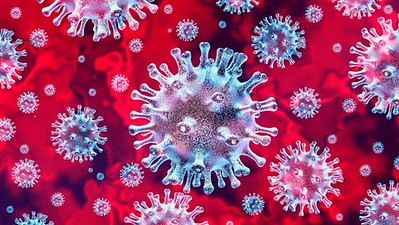Report: Struggle for maternal health

 The report notes that maternal mortality rates in South Africa remain unacceptably high. While the country has seen improvements since 2011, the number of women and girls dying during pregnancy or shortly after giving birth has increased dramatically since 2000.
The report notes that maternal mortality rates in South Africa remain unacceptably high. While the country has seen improvements since 2011, the number of women and girls dying during pregnancy or shortly after giving birth has increased dramatically since 2000.
Between March 2013 and September 2014, Amnesty International teams visited the two provinces and conducted desk-based research into the factors contributing to poor antenatal care. Researchers found several factors led women to delay or avoid seeking antenatal care, namely:
- Lack of privacy, patient confidentiality and informed consent at health facilities, especially around the implementation of HIV testing during antenatal care;
- Lack of information and knowledge about sexual and reproductive health and rights, including lack of training on the part of health care workers; and
- Persistent problems relating to the availability and costs of transport.
The report recommends increased awareness about patients’ rights, especially that regarding informed consent. It also advocates better education around sexual and reproductive health and rights that includes men and boys. Finally, it stresses the need to address the unavailability and high cost of transport to and from the clinic for pregnant women possibly through pregnancy-related grants or subsidized transport.
Download the report: Struggle for Maternal Health
Read Health-e News coverage of the report’s Mpumalanga launch
Author
Republish this article
This work is licensed under a Creative Commons Attribution-NoDerivatives 4.0 International License.
Unless otherwise noted, you can republish our articles for free under a Creative Commons license. Here’s what you need to know:
You have to credit Health-e News. In the byline, we prefer “Author Name, Publication.” At the top of the text of your story, include a line that reads: “This story was originally published by Health-e News.” You must link the word “Health-e News” to the original URL of the story.
You must include all of the links from our story, including our newsletter sign up link.
If you use canonical metadata, please use the Health-e News URL. For more information about canonical metadata, click here.
You can’t edit our material, except to reflect relative changes in time, location and editorial style. (For example, “yesterday” can be changed to “last week”)
You have no rights to sell, license, syndicate, or otherwise represent yourself as the authorized owner of our material to any third parties. This means that you cannot actively publish or submit our work for syndication to third party platforms or apps like Apple News or Google News. Health-e News understands that publishers cannot fully control when certain third parties automatically summarise or crawl content from publishers’ own sites.
You can’t republish our material wholesale, or automatically; you need to select stories to be republished individually.
If you share republished stories on social media, we’d appreciate being tagged in your posts. You can find us on Twitter @HealthENews, Instagram @healthenews, and Facebook Health-e News Service.
You can grab HTML code for our stories easily. Click on the Creative Commons logo on our stories. You’ll find it with the other share buttons.
If you have any other questions, contact info@health-e.org.za.
Report: Struggle for maternal health
by healthe, Health-e News
October 9, 2014
MOST READ
Prolonged power outage leaves hospitals in the dark for two days
There’s more to self-care than scented candles or massages, it’s a key public health tool
Malaria can’t be beaten without political will and more funding
Access to clean water and stable electricity could go a long way to addressing rising food poisoning in SA
EDITOR'S PICKS
Related

HIV remains a leading killer in Africa despite medical breakthroughs – how to eliminate it


